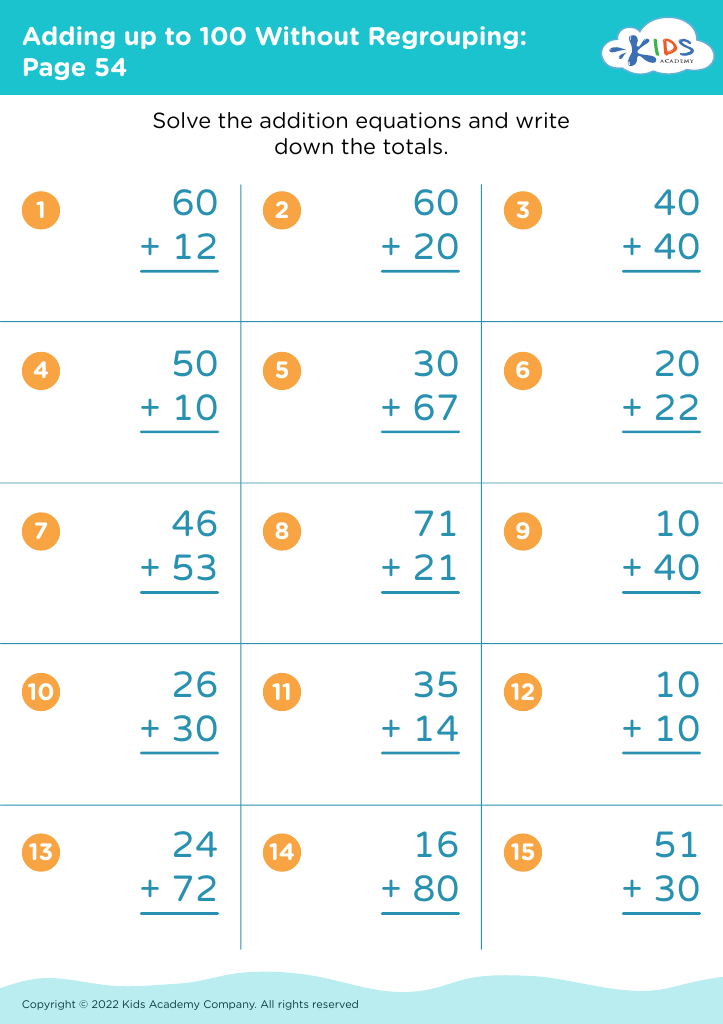Fraction conversion Addition Worksheets for Ages 3-7
3 filtered results
-
From - To
Welcome to our engaging Fraction Conversion Addition Worksheets, designed specifically for children aged 3-7! These interactive resources aim to introduce young learners to the concepts of fractions and addition in a fun and accessible way. Each worksheet features colorful illustrations and age-appropriate exercises that encourage hands-on learning. Kids will explore fraction conversion while developing essential math skills through stimulating activities. Perfect for homework, practice, or classroom use, these worksheets not only strengthen math knowledge but also promote confidence in young learners. Dive into a world of discovery with our Fraction Conversion Addition Worksheets and make learning a joyful adventure!
Teaching young children about fraction conversion and addition lays a strong foundation for their mathematical understanding. For children aged 3-7, introducing these concepts in a simple and engaging way helps develop critical thinking and problem-solving skills. Understanding basic fractions helps children grasp the idea of part-to-whole relationships, which is essential in many areas of learning, including measurement, cooking, and sharing.
Fractions are a stepping stone to more complex mathematical concepts. By providing early exposure, parents and teachers can cultivate a positive attitude towards math, reducing anxiety related to fractions later on. Fun, hands-on activities—such as using visual aids with objects, involving interactions with fractions during daily routines, or playing educational games—can engage young learners and enhance their understanding.
Additionally, incorporating fractions in real-life contexts can promote essential social skills as children share and cooperate when dividing materials. It nurtures communication, ensuring children can articulate their understanding and reasoning. Encouraging this type of early engagement with fractions not only supports academic growth but also fosters a lifelong appreciation of math, laying the groundwork for future success in more advanced concepts.
























